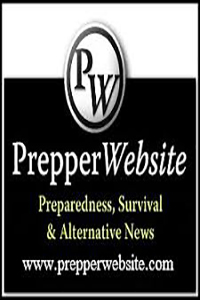By J.
Something I have been thinking about lately, given the bitter cold that the country got blasted with not long ago, is knowing your environment; more specifically, knowing the inherent hazards and benefits of it. This can, in my opinion, make or break you in a situation gone bad. It can also be beneficial to you on a day trip or weekend outing. I understand that this might sound like a simple concept but please indulge me.
I will pose a question here: How well do you know the flora and fauna of your local and designated bugout environment? Do you know what hazardous animals and insects are local to your area? More importantly, could you recognize them? Do you know what type of places they prefer to use as lairs? Knowing these things can help you avoid these potential hazards. Getting bitten by a rattlesnake or a Brown Recluse, for example, is not a situation any of us want to get mixed up in.
As far as local plant life, do you know what type of plants to avoid? Can you recognize, for instance, poison ivy? Would you recognize it in the fall as the leaves turn? Many areas have unique indigenous plants. For example, where I grew up we had a vicious little plant we referred to as a Bull Nettle. They look pretty interesting, with a soft, downy appearing fuzz on them and small white flowers. This fuzzy appearance actually contains stinging hairs that are akin to getting hit by a jellyfish (I have been hit by both and can compare!)
I love the outdoors. I spend every bit of time I can spare outside. While spending time out of doors is often relaxing for many of us, it behooves us to remember that nature also deserves and commands respect. Not all creatures and plants are human friendly. Knowing and recognizing this can prevent serious discomfort and possibly grave illness.









2 comments
PJ:
I had to laugh at your latest post. Not because of your advice (which is excellent), but because of a memory your post brought flooding back.
In the Army I had a close friend from New York, NY. I’ll call him Bill.
Bill was a tough as nails when it came to urban fighting and city survival but was scared to death of spiders and even more so of snakes.
While we were in advanced infantry training we had to spend a number of days in the wilds of Louisiana which meant we had to bivouac. On the first evening we setup camp Bill meticulously pitched his pup-tent in what he thought was an ideal location.
Bill’s problem was he didn’t know that he had pitched his tent directly over a pile of leaves which hid a small harmless Brown snake. At dusk Bill made one last check of his equipment and crawled into his tent only to discover that Brown snake had found Bill’s sleeping bag far more comfortable then the ground. Seeing that snake, Bill let out a yell at the top of his lungs that was reminiscent of the Rebel yell during the War Between the States; stood straight up, taking tent and tent pegs with him; then proceeded in quick time—albeit blinded because the tent was draped over him—to run helter-skelter through the bivouac camp.
It took a full ten minutes for the bulk of the squad to catch and calm Bill down. Needless to say sleeping, for Bill, was out of the question so he volunteered to stand guard duty ALL night.
Indeed, it is a very good idea to know your environment.
Author
Bill and I have something in common. I hate snakes, and by hate I mean HATE. I just can’t get past the whole slithering/slimy appearance thing. You could offer me 100k to lay down in a box full of snakes and I’d turn you down.